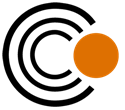 Course Snapshot for ACC101 - Fundamentals of Accounting
Course Snapshot for ACC101 - Fundamentals of Accounting
The information listed below is subject to change. Please review the course syllabus within your online course at the start of class.
Course Competencies
The competencies you will demonstrate in this course are as follows:
- Explain the various types of accounts, the rules of debit and credit, and cash versus accural basis of accounting.
- Analyze transactions in relationship to the accounting equation.
- Prepare transactions for service businesses in an accounting system.
- Complete end-of-period work including preparing adjusting entries, financial statements, and closing entries.
- Describe the advantages and disadvantages of using both computerized and manual systems.
- Analyze cash transactions.
- Prepare bank reconciliations.
- Describe effective internal control procedures.
- Prepare transactions for a merchandising business in an accounting system
Module Outcomes Mapped to Competencies
Module 1 Learning Outcomes |
Mapped to Course Competencies (above) |
| Define the accounting equation. | 1 |
| Analyze and record business transactions using debits, credits and T-accounts. | 1, 2, 3 |
| Journalize and post transactions, complete a trial balance and prepare basic financial statements. | 1, 2, 3 |
| Formulate responses to ethical situations involving accounting records. | 8 |
Module 2 Learning Outcomes |
Mapped to Course Competencies (above) |
| Journalize and post adjusting entries. | 1, 2, 3, 4 |
| Complete a worksheet through the preparation of financial statements. | 1, 2, 3, 4 |
| Journalize and post closing entries and create a post-closing trial balance. | 4 |
| Identify advantages and disadvantages of computerized and manual accounting systems. | 5 |
Module 3 Learning Outcomes |
Mapped to Course Competencies (above) |
| Reconcile bank accounts and establish/replenish petty cash and change funds. | 1, 2, 3, 6 |
| Calculate pay/deductions and maintain payroll records. | 1, 2, 3 |
| Record and pay payroll taxes and file government reports. | 1, 2, 3 |
| Formulate responses to ethical situations involving payroll records. | 8 |
Module 4 Learning Outcomes |
Mapped to Course Competencies (above) |
| Record and post sales, purchases, cash receipts, and cash payments transactions. | 1, 2 |
| Maintain subsidiary ledgers. | 1, 2 |
| Prepare entries for a perpetual inventory system. | 1, 2 |
| Formulate responses to internal control issues involving merchandising inventory. | 7 |
Module 5 Learning Outcomes |
Mapped to Course Competencies (above) |
| Journalize and post adjusting entries and complete a worksheet for a merchandise company. | 1, 2, 4 |
| Journalize and post closing entries, prepare financial statements, and create a post-closing trial balance for a merchandise company. | 1, 2, 4 |
| Record reversing entries. | 1, 2, 4 |
| Formulate responses to ethical situations involving accounting. | 8 |
Course Time Commitment and Expectations
For every credit hour, students should plan to spend an average of 2-3 hours per week for course-related activities in a 15-week course. For example, a 3 credit hour course would average an average 6-9 hours per week to read/listen to the online content, participate in discussion forums, complete assignments, and study the course material. For 10 and 6-week courses, the amount of time per week will be higher so all course competencies, module outcomes, and assignments will be covered.
Aside from typical reading assignments, this course has the following (Please Note: This list is subject to change based on the discretion of the instructor facilitating this course.):
Assignment | Points |
|---|---|
| Introductory Assignment | 10 |
| Discussions (10 @ 20 points each) | 200 |
| Chapter Problems (12 @ 20 points each) | 240 |
| Mini Practice Set - First Month Only | 50 |
| Exams (5 @ x 100 points each) | 500 |
| TOTAL | 1,000 |
CCCOnline Course Quality Commitment
CCCOnline goes to great lengths to assure the quality of your online learning experience. You can expect the following from our courses:
- All CCCOnline courses are developed by content experts and a professional team of instructional designers.
- CCCOnline courses are built with a template that assures accessibility and Quality Matters Design Standards.
- There is navigation consistency across all CCCOnline courses.
- Most of our courses come with illustrative models and videos to enhance learning concepts.